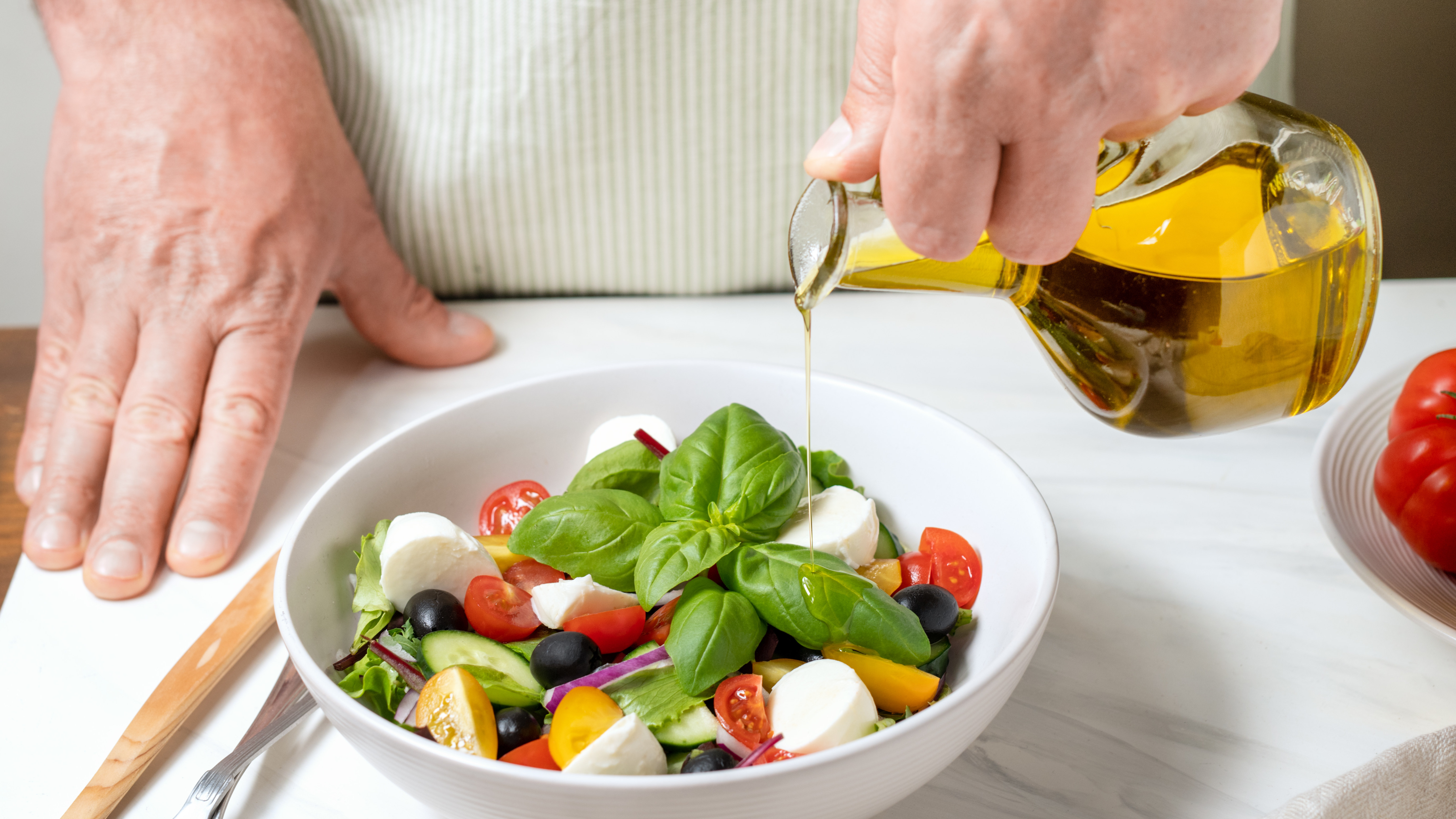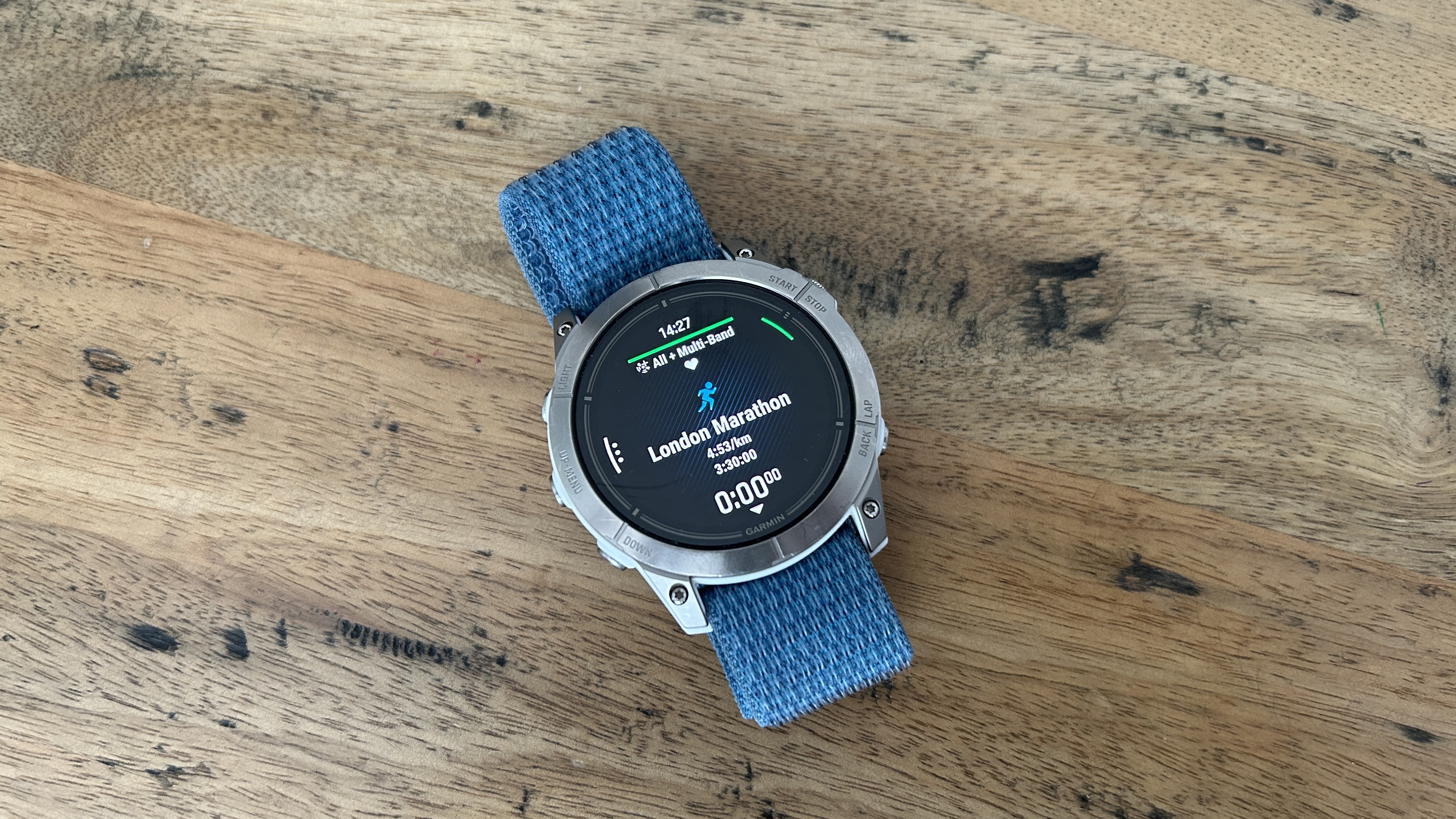What Is The Mediterranean Diet?
The Mediterranean diet is healthy and easy to understand, but it requires full commitment to get the benefits

The Mediterranean diet is well established in popular consciousness as a healthy one, and there’s no shortage of research to back it up. Two of the five “Blue zones” (areas of the world that have higher than average life expectancy) are in the Mediterranean region—in Sardinia, Italy, and Icaria, Greece—while many studies have highlighted the advantages of the diet.
To learn more about the diet and its benefits, we spoke to Sasha Watkins, dietitian and chief science officer at Field Doctor, which is one of the best healthy meal prep services that we’ve tested, to get her expert perspective on this well-established approach to healthy eating.
What is the Mediterranean diet?
This is a diet that consists mainly of fruit and vegetables, beans, legumes, nuts, wholegrains, fish, extra virgin olive oil, and small amounts of dairy and red wine. It’s not about processed foods or processed meats. There is some red meat, but it’s a heavily plant-based diet that is high in healthy fats and high in fiber. A lot of herbs and spices feature in the dishes.
The diet is not a low-carbohydrate option because, for example, there can be more than five servings of wholegrains in a day, as well as one serving of nuts, and up to 60ml of olive oil—drizzled on everything. It includes three to four portions of legumes and beans a week, and fish twice or more in a week.
The most important thing about this diet is that it’s a style of eating. It’s not about individual ingredients. It’s the combination of these foods that seems to protect against disease, rather than the benefit coming from individual foods.
It’s not pasta and pizza?
No, it’s not. Of course, countries where this diet originated have changed too, and people there now consume more processed foods, which include pizza and refined pastas. So this diet harks back to before that with dishes that, while higher in carbohydrates than a lot of people think, are based around wholegrains and a lot of home cooking. There’s substantial evidence of health benefits around using the sofrito way of cooking as a base—where you’re cooking garlic and tomatoes and onions in extra virgin olive oil, which releases these wonderful polyphenols.
What foods do you avoid with the Mediterranean diet?
Ultra-processed foods that are highly refined, high in sugar, or high in fat. Sugary beverages are out, as are fried snacks, biscuits and sweets.
Is the Mediterranean diet as healthy as everyone says?
Yes. The evidence is compelling. It’s the most studied dietary pattern in the world, and there is data to show it is linked to a reduction in the risk of heart disease, metabolic syndrome, diabetes, certain cancers, and depression. There’s a study called the SMILEs trial, conducted through the Food and Mood Centre at Deakin University in Victoria, Australia, which looked at a form of the diet and showed that it reduced depression. We’ve also seen it linked with better gut health. It seems to also be linked with better cognitive health, long term, and healthier, aging.
Do you have to follow a certain lifestyle as well as the diet?

Definitely. It’s not just about the food, it’s a way of life. It’s often about enjoying these meals together; companionship, everybody is sitting around a table together, eating slowly, and enjoying themselves.
The other thing is consistency. You can’t just eat a Mediterranean diet and then have lots of fried foods and processed foods too. You can’t out-eat a bad diet by just having some Mediterranean foods. One piece of research weighted people’s diet by how much of it was a western-style diet—highly processed and full of fried foods, for example—versus the Mediterranean diet, and the more Mediterranean your diet was, the better the cognitive outcomes.
Are there downsides to the Mediterranean diet?
There is a concern that it can be expensive, and that extra virgin olive oil, fish and lots of fruit and vegetables and fresh foods, cost more. However, research suggests that eating this way can be budgeted out and that it doesn’t have to cost extra because you can cook in bulk.
People also worry about trying new diets, that’s it’s going to be hard to master. The beautiful bit about the Mediterranean diet is it’s a simple one to follow, and there are many recipes to try. Start by taking a couple of steps: add in a few nuts and olives to your diet and switch to extra virgin olive oil as your primary form of fat for cooking, as well as putting it on salad. Begin with your vegetables—the diet is rich in these. And, actually, this makes the diet more affordable because it’s so plant-heavy. The next thing is to move to using wholegrains, and sample lots of different types.
How many portions of fruit and veg are eaten a day?
[In the UK] we always think of five a day but, actually, in some of the more traditional Mediterranean diets they may be having as many as nine. You’re aiming to get six portions of veg a day, three portions of fruit a day.
Is the fish in the diet oily fish?
There’s plenty of evidence about healthy fats, such as omega-3, that we know come from oily fish, and those who eat a Mediterranean diet consume oily fish such as sardines and anchovies. But all fish is good.
Get the Coach Newsletter
Sign up for workout ideas, training advice, reviews of the latest gear and more.
Is the Mediterranean diet good for vegans?
It is, though it’s harder for vegans. While you get a lot of the good fats from the extra virgin olive oil, there are some benefits that you’re getting from the protein in the diet. While the diet is low on red meat, it incorporates fish and dairy. If someone is following a vegan diet, ensure that it is carefully planned and that the gaps that we know sometimes occasionally occur—such as deficiencies in B12, calcium and iron—are being filled.
Is red wine crucial to the diet or would going teetotal be healthier?
There’s debate around this issue. The advice is that red wine should be consumed in moderation, which for women is a small glass a day. I think it’s possible many of us have lost track of what a small glass looks like! The benefits from the red wine are when drinking it with your meal, when it helps release antioxidants or polyphenols, as well as some of the goodness that exists within the wine itself.
Yet, there is evidence that shows alcohol, particularly consuming too much of it, is negative for your health. It’s a balancing act: red wine in moderation has been shown to be helpful, but being teetotal has also been shown to be helpful.

Nick Harris-Fry is a journalist who has been covering health and fitness since 2015. Nick is an avid runner, covering 70-110km a week, which gives him ample opportunity to test a wide range of running shoes and running gear. He is also the chief tester for fitness trackers and running watches, treadmills and exercise bikes, and workout headphones.









